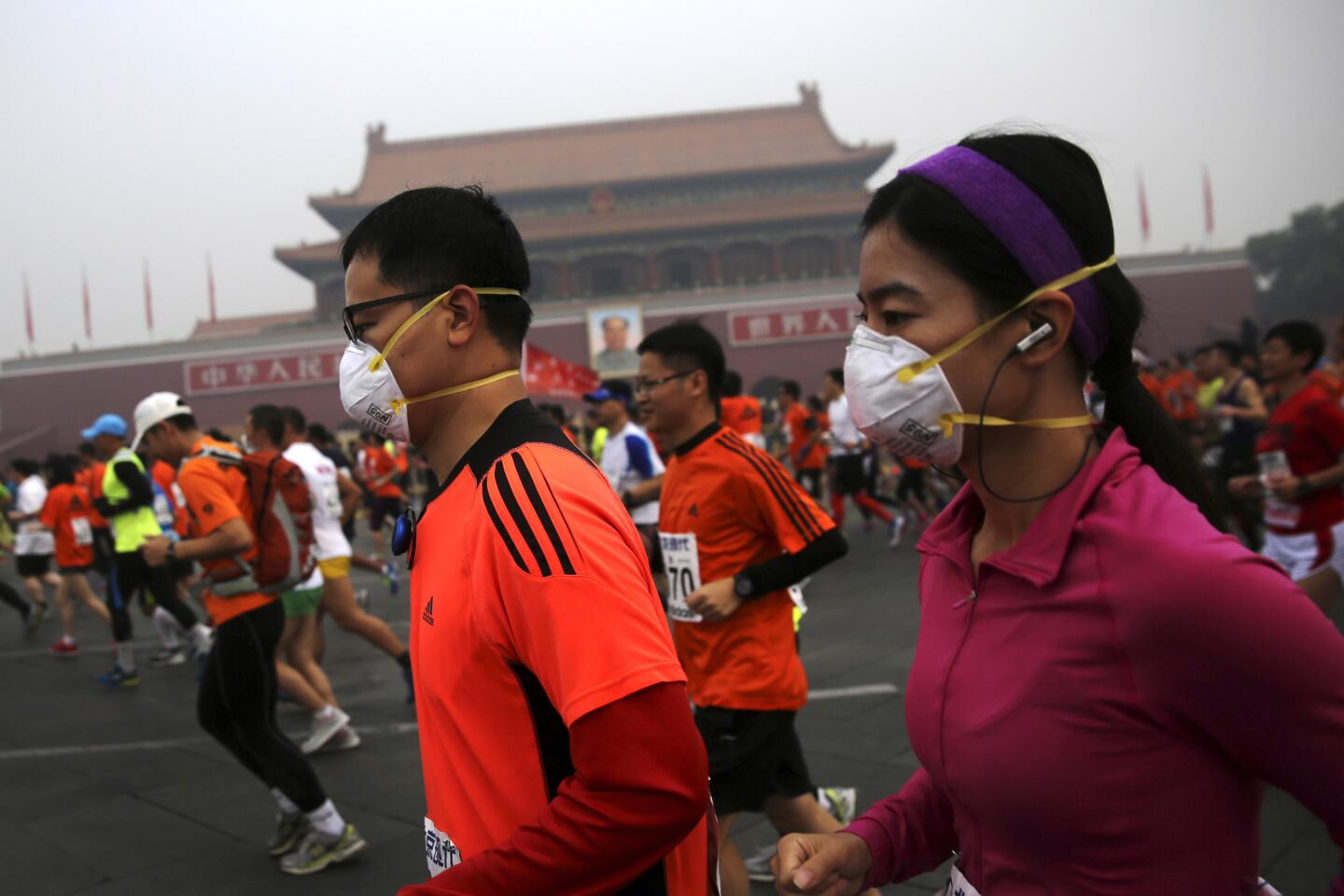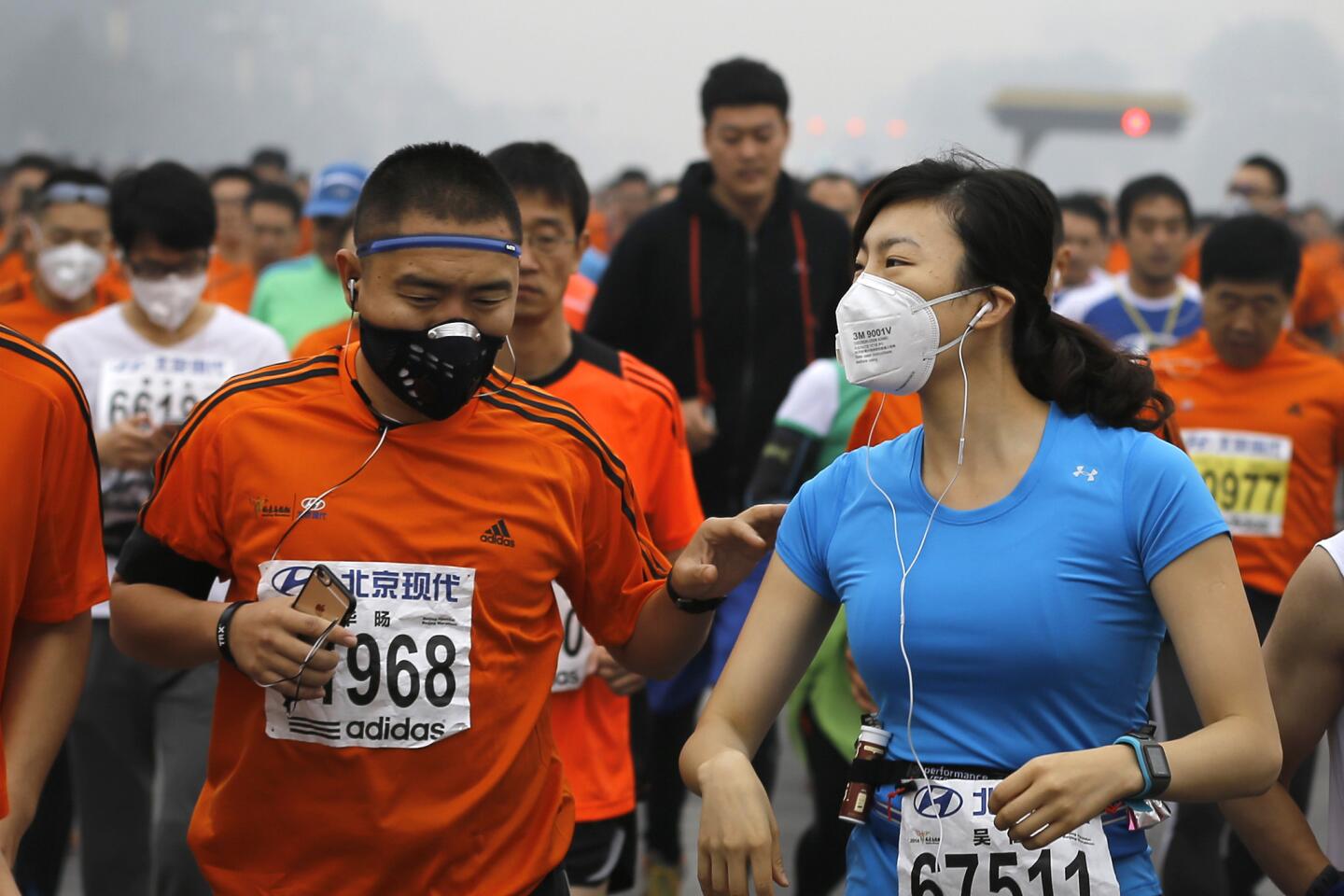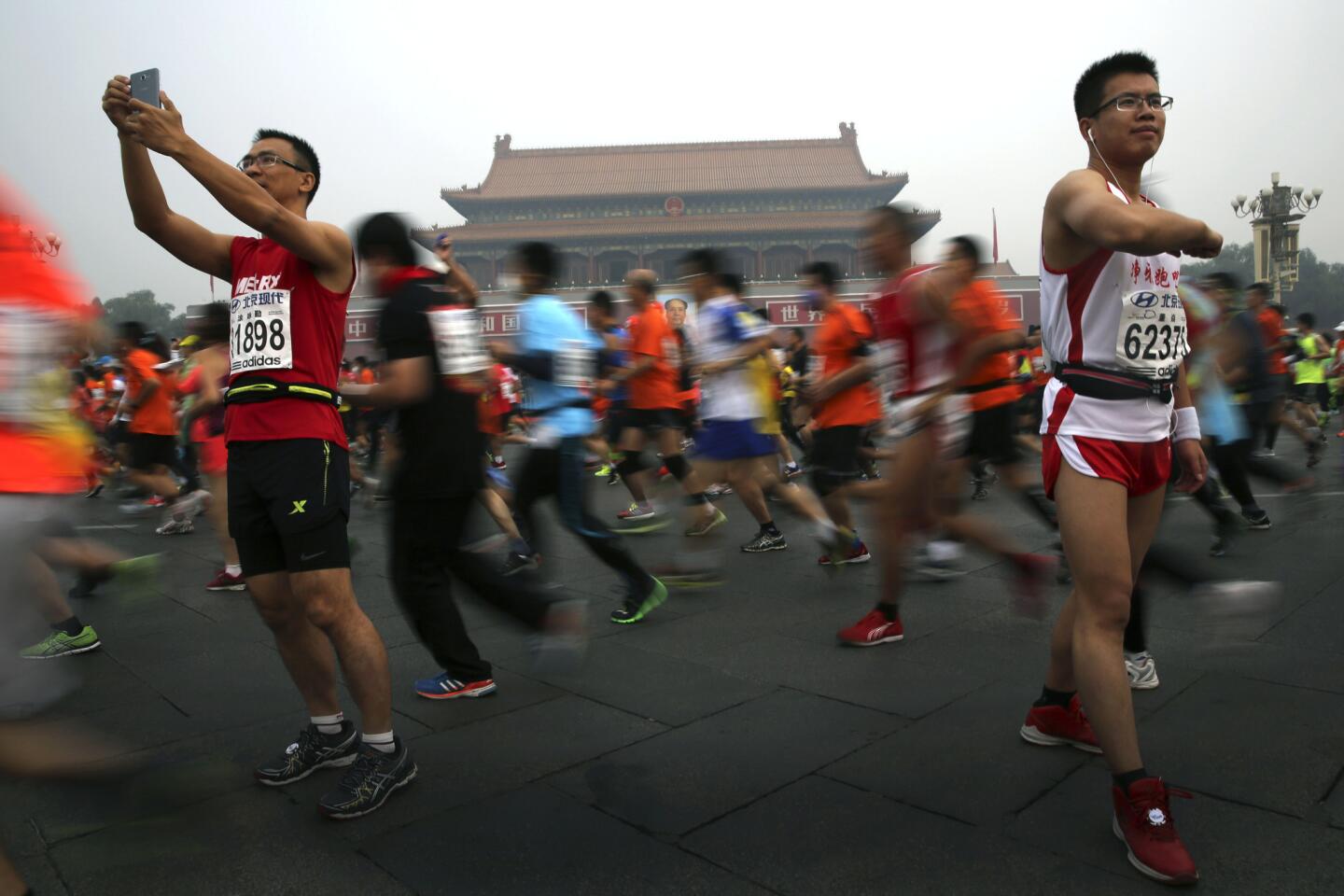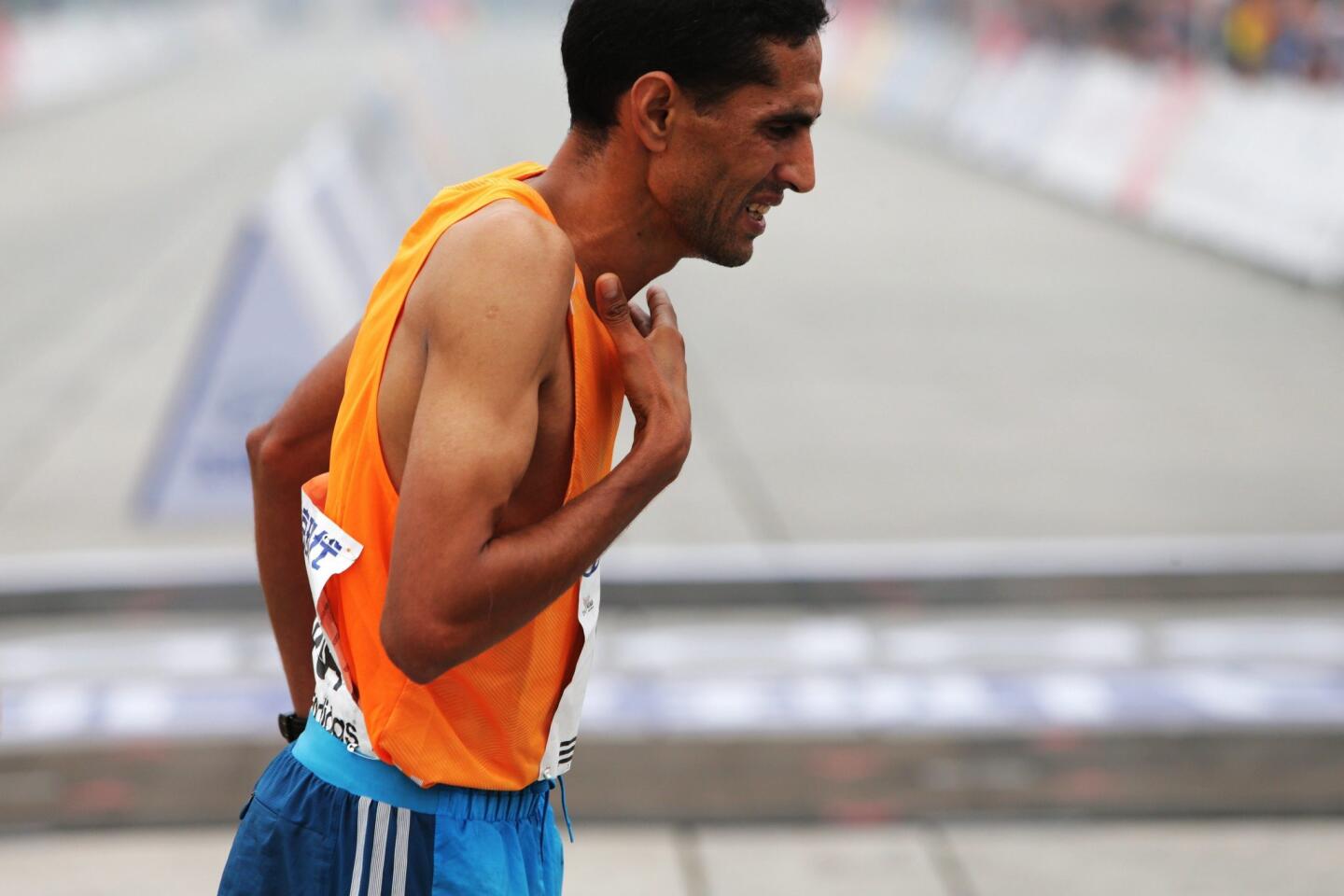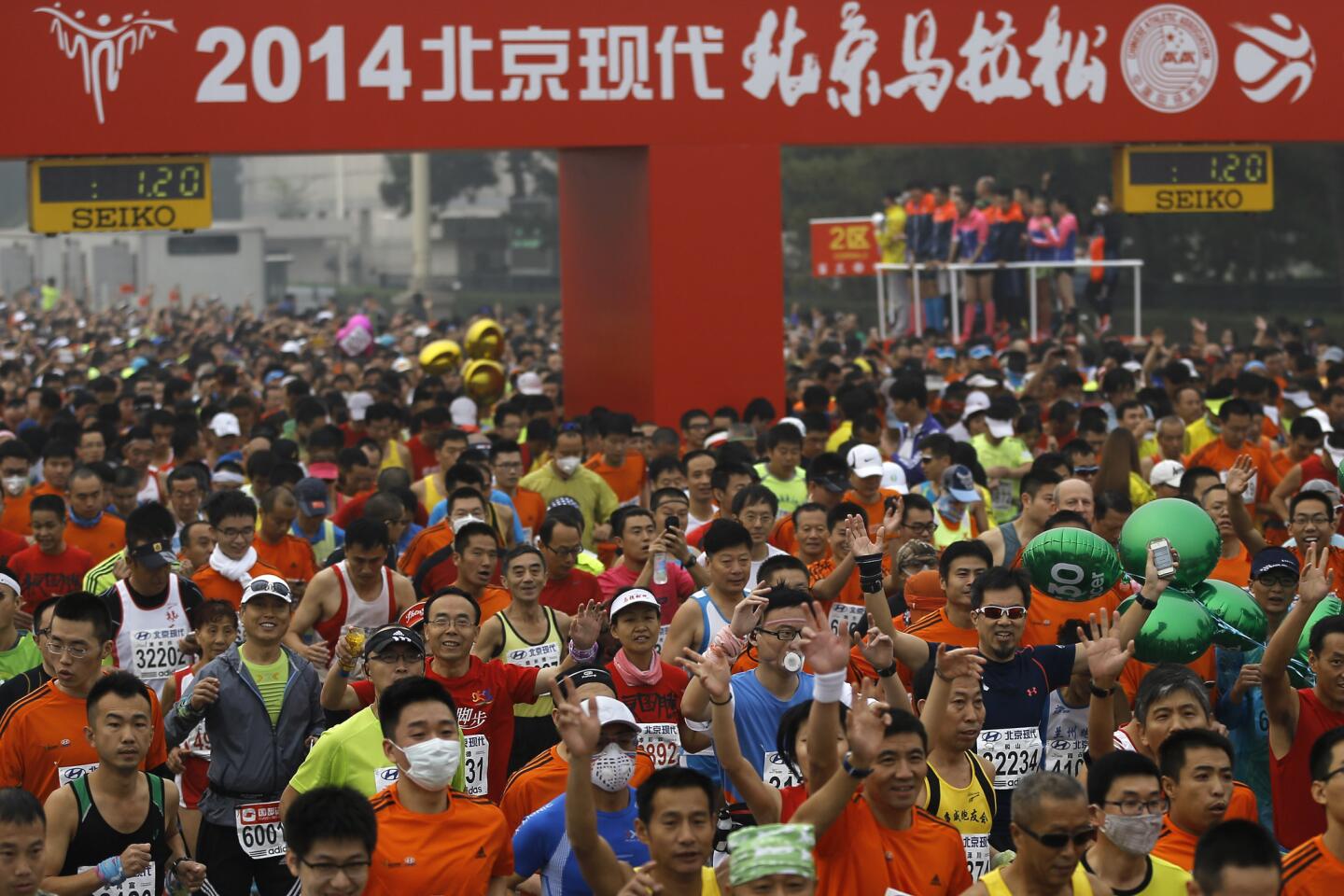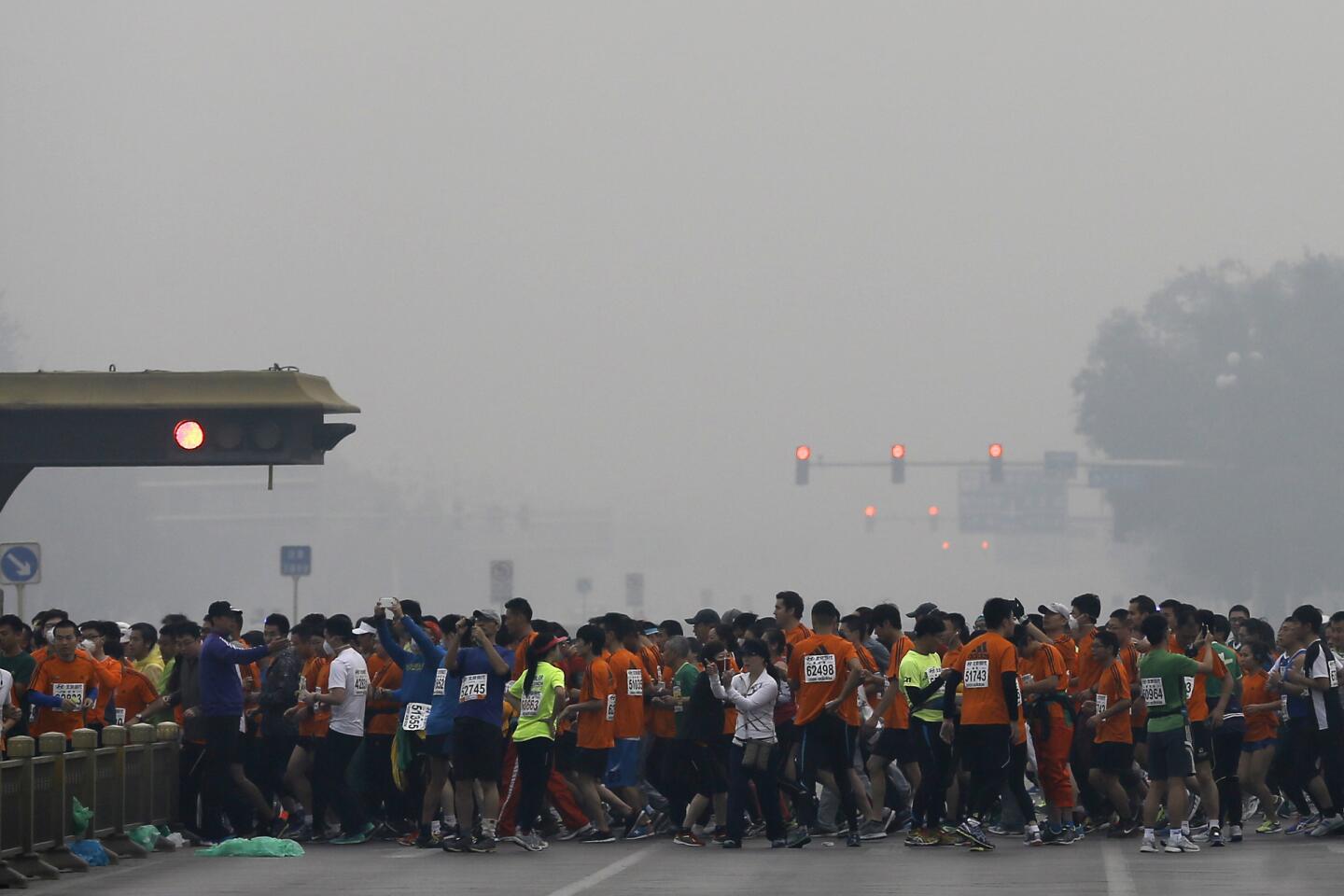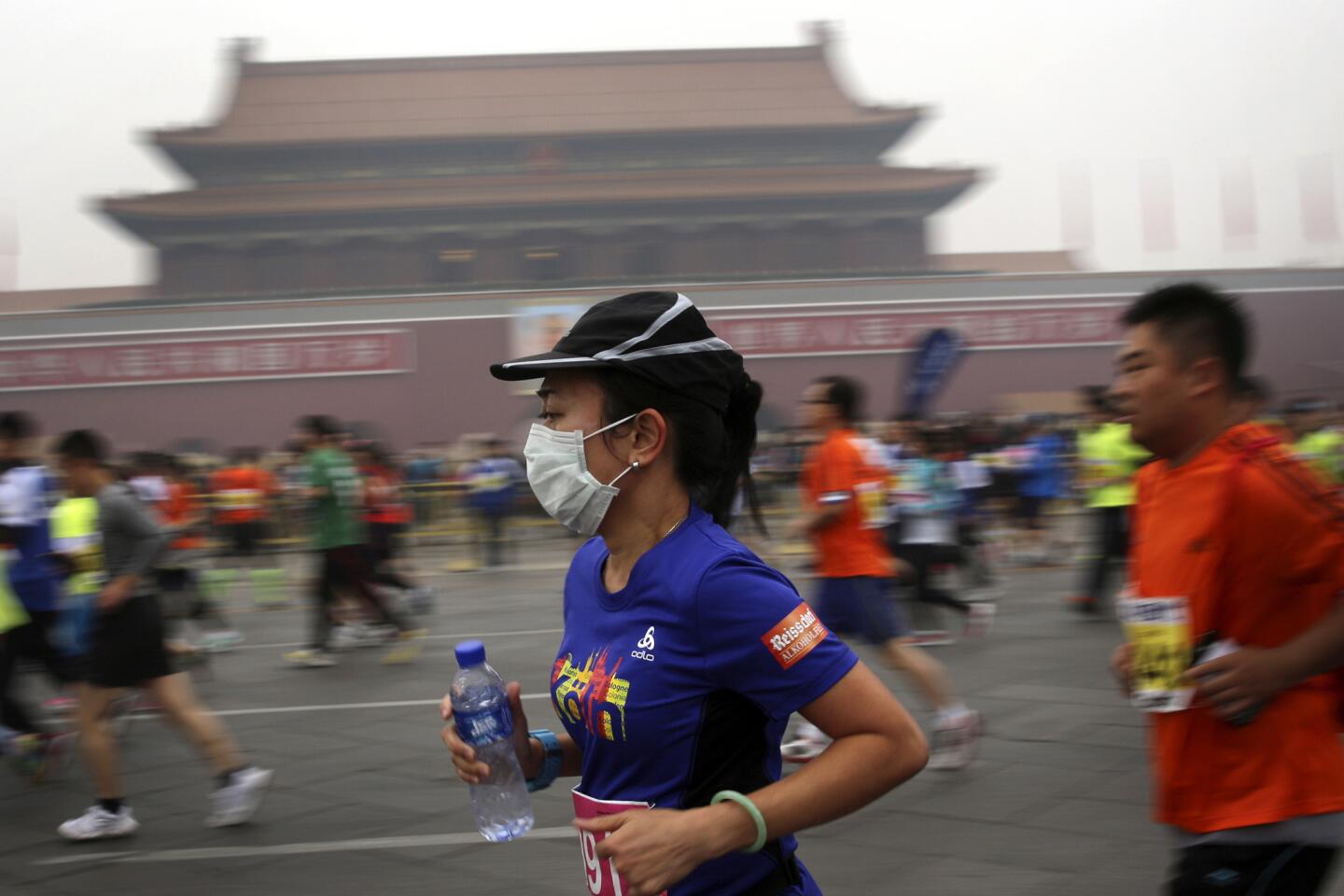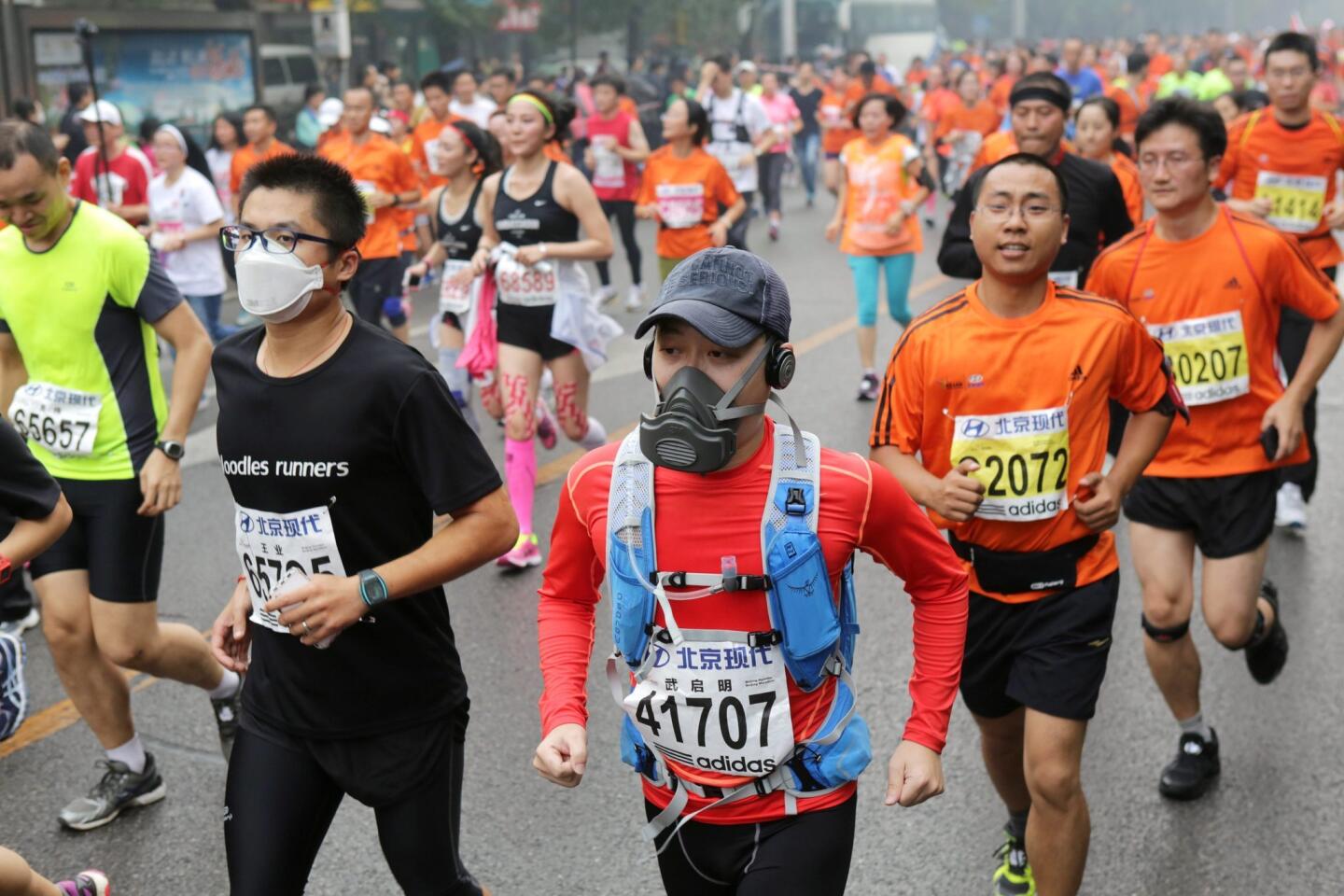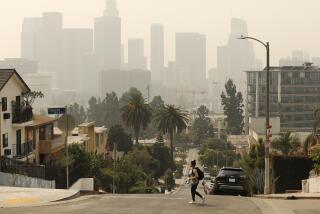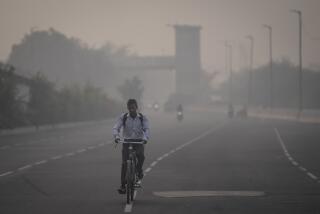Smog chokes Beijing marathon, but should be gone for APEC
When cold wind didn’t arrive as expected, participants in the annual Beijing Marathon had to endure the 26-mile race in the thick smog surrounding the city. But world leaders coming to China’s capital for an APEC summit in November won’t need to put all their hope for clean air on the gusts of nature.
Many Beijing marathoners donned face masks as race organizers warned runners before the event on Sunday morning to “make decisions according to their own condition.” By race time, PM2.5 levels -- that’s hazardous particulate matter smaller than 2.5 micrometers -- reached 344 micrograms per cubic meter, a level deemed “hazardous” and nearly 14 times higher than the amount considered safe by the World Health Organization.
State media cautioned against outdoor activity, with China’s National Meteorological Center calling a yellow alert. Even the Communist Party mouthpiece People’s Daily said the air was “not suitable for outdoor activities.”
Yet about 30,000 runners still braved the gray cloud.
Ambulances sat at the finish line with water sprays and sponges for competitors. Organizers told the Beijing News they advised athletes to wash off their skin after it was “exposed to the air.”
Not all athletes managed to finish. China National Radio reported that a runner from Kenya who led the pack in the initial 12 miles quit in the middle of the race. The race was won by Girmay Birhanu Gebru of Ethiopia, who finished in 2 hours, 10 minutes and 42 seconds.
A series of international sports events have taken place in Beijing in recent weeks, including a soccer game between Argentina and Brazil. When those two rivals came to Beijing a week ago to renew their storied rivalry, cold wind arrived in the city just two hours before game time, blowing away pollutants and bringing near perfect conditions.
Both national and local meteorological centers have been sending out timely smog forecasts in recent weeks, informing the public about when optimal weather conditions will help clean the city’s dirty air. A recent opinion piece on a usually patriotic website, rednet.cn, questioned the intentions of such forecasts with the headline: “Combating the smog can not only rely on the wind blowing it away.”
But when an event is as important to Chinese authorities as the 2008 Olympics or the upcoming Asia-Pacific Economic Cooperation forum in Beijing, they have many anti-smog tricks up their sleeves. After authorities shut down or relocated heavy polluters such as Capital Steel, reduced numerous factories’ output and forced half the city’s automobiles off the streets, Beijing’s air stayed clean throughout the Olympics in 2008.
To make sure President Obama and other APEC attendees can enjoy the beautiful scenery at Yanxi Lake, 31 miles northeast of Beijing, the Chinese government is mounting a momentous effort similar to what it did in 2008 to keep the skies blue.
In August, Chinese authorities announced plans requiring six cities and provinces surrounding Beijing to suspend production at heavy polluters and reduce production capacity by 30% at other factories.
Last week, the government of Hebei province, which is said to be a major contributor to the air pollution in Beijing, said it planned to shut down work at 881 construction sites that produce large amounts of dust. The government in Shandong province also said it would shut down 112 projects during the APEC conference.
This month, authorities in Beijing announced that half of the city’s private vehicles would be forced off the streets from Nov. 3-12, cutting the city’s total traffic by 35%, the official New China News Agency reported. And the State Council, China’s cabinet, approved the local government’s request to give a six-day holiday to staff from government departments, institutions and other organizations in Beijing from Nov. 7-12.
Such temporary measures may improve the city’s air quality during the two-week APEC conference. But the city’s overall air quality is unlikely to change afterward.
“The difference in Beijing’s air quality during and after the 2008 Olympics was a good example,” Chinese environmentalist Zhao Liang told Beijing-based Pengpai News. “This kind of special project to combat air pollution will not improve the city’s air quality fundamentally.”
Zhao Rui, a resident of Baoding city, 100 miles from Beijing, voiced similar concerns in a post on the Chinese social media site Weibo.
“They only try to do something to improve the air quality when something [important] happens,” Zhao wrote. “I feel it has become a project just for face. Smog will come back again once APEC finishes.”
Tommy Yang and Sean Silbert in the Times’ Beijing bureau contributed to this report.
More to Read
Start your day right
Sign up for Essential California for news, features and recommendations from the L.A. Times and beyond in your inbox six days a week.
You may occasionally receive promotional content from the Los Angeles Times.
